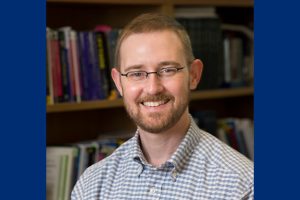
Applications of Open Catalyst Project models in uncertainty quantification, geometry optimization and transition state search
The Open Catalyst project provides large DFT data sets of catalytic materials and adsorbates on catalytic surfaces, a series of ML models, and pre-trained model checkpoints that can be used on their own, or as starting points for new task-specific fine-tuned models. The pre-trained models are trained on millions of DFT calculations that represent relaxation trajectories and ground-state relaxed geometries. Two outstanding questions have been how reliable are these models in predictions, and can they be used reliably for other tasks? In this talk I will present progress we have made in uncertainty quantification of these models and an application of using pre-trained models to compute reaction barriers. For uncertainty quantification, we compared several methods including ensembles, latent space and conformal methods. We find the conformal methods perform the most reliably and they can be used to help identify predictions that are out of domain and unreliable. We also used pre-trained models to calculate reaction barriers for 932 different reactions. We found a 91% success rate with the OCP model and a 28x speedup compared to just DFT. We will show results from reproducing two case studies using a pre-trained MLP that show we can find lower energy transition states in many cases through a more exhaustive search of possible pathways.
John Kitchin completed his B.S. in Chemistry at North Carolina State University. He completed a M.S. in Materials Science and a PhD in Chemical Engineering at the University of Delaware in 2004 under the advisement of Dr. Jingguang Chen and Dr. Mark Barteau. He
received an Alexander von Humboldt postdoctoral fellowship and lived in Berlin, Germany for 1 ½ years studying alloy segregation with Karsten Reuter and Matthias Scheffler in the Theory Department at the Fritz Haber Institut. Professor Kitchin began a tenure-track faculty position in the Chemical Engineering Department at Carnegie Mellon University in January of 2006. He is currently a Full Professor. At CMU, Professor Kitchin works in the
areas of alloy catalysis and molecular simulation. He was awarded a DOE Early Career award in 2010 to investigate multifunctional oxide electrocatalysts for the oxygen evolution reaction in water splitting using experimental and computational methods. He received a Presidential Early Career Award for Scientists and Engineers in 2011. He completed a sabbatical in the Accelerated Science group at Google learning to apply machine learning to scientific and engineering problems in 2018.
https://kitchingroup.cheme.cmu.edu (Full CV)
[email protected]
@johnkitchin https://www.youtube.com/@JohnKitchin